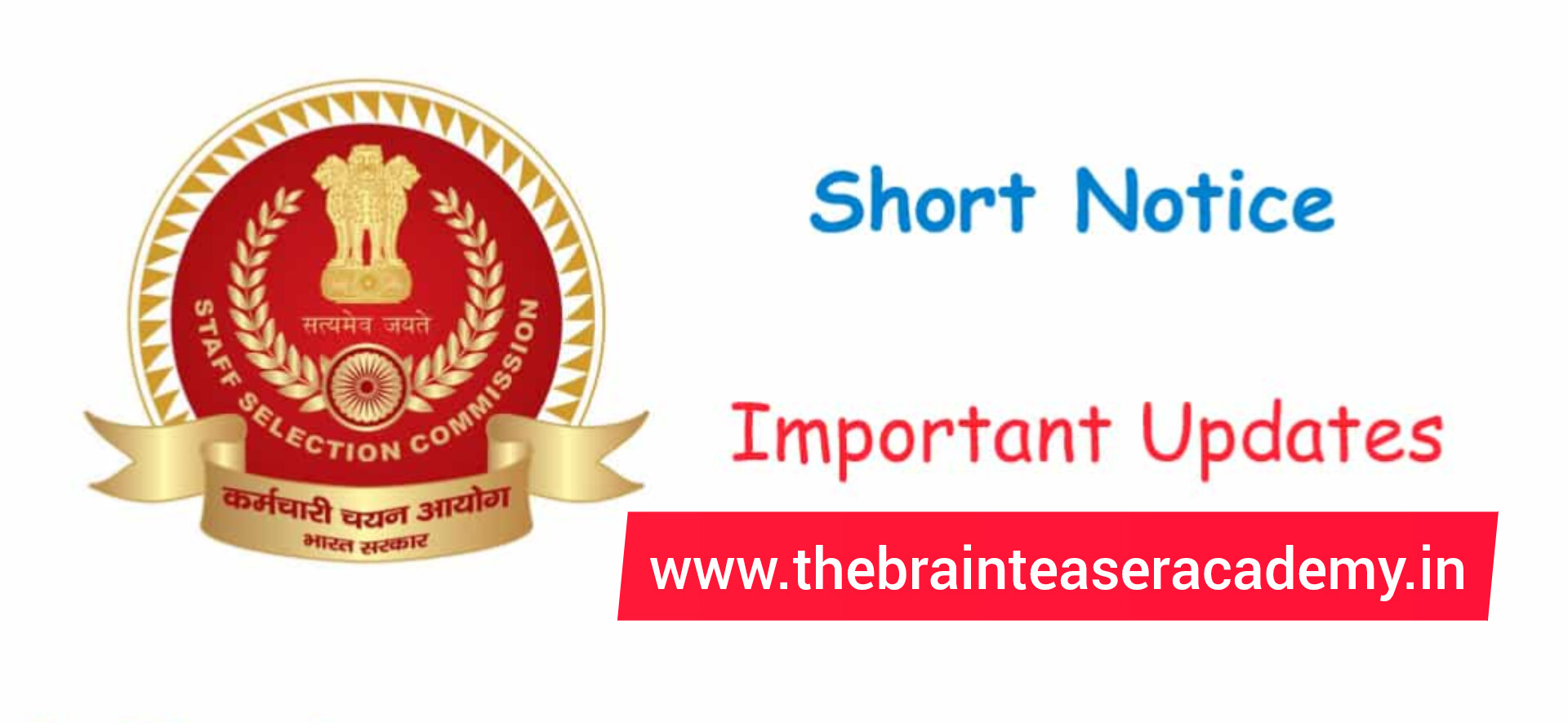Staff Selection Commission Announces Multi-Tasking Staff and Havaldar Examination 2024
The Staff Selection Commission has recently made a significant announcement regarding the Multi-Tasking (Non-Technical) Staff and Havaldar (CBIC & CBN) Examination scheduled to take place from 30th September to 14th November 2024. This examination presents a valuable opportunity for candidates aspiring to join these esteemed positions within the Commission.
Candidates preparing for this examination are strongly advised to stay informed and updated by visiting the Commission's official website regularly. By keeping a close eye on the website, candidates can access crucial information, updates, and any additional details related to the examination process, ensuring they are well-prepared and equipped for this important opportunity.
The Staff Selection Commission's commitment to conducting fair and transparent recruitment processes underscores the significance of this upcoming examination. Aspiring candidates are encouraged to diligently prepare, stay informed, and seize this chance to showcase their skills and qualifications for a rewarding career within the Commission. Stay tuned for further updates and best of luck to all candidates gearing up for the Multi-Tasking Staff and Havaldar Examination 2024!
How to download admit card
To download your admit card for the Multi-Tasking (Non-Technical) Staff and Havaldar Examination 2024 conducted by the Staff Selection Commission in New Delhi, you should follow these steps:
1. Visit the official website of the Staff Selection Commission.
2. Look for the section related to the upcoming examination or admit card download.
3. Enter the required details such as your registration number, date of birth, and any other information as requested.
4. Once you have entered the correct details, your admit card should be displayed on the screen.
5. Verify all the information on the admit card, including your name, exam date, time, and venue.
6. Download the admit card and take a printout for future reference.
Remember to carry your admit card to the examination center as it serves as a crucial document for verification purposes. If you encounter any issues during the download process, don't hesitate to reach out to the Staff Selection Commission for assistance. Good luck with your exam preparation!
Can I download the admit card on my phone?
Yes, you can download the admit card on your phone! Just visit the official website of the Staff Selection Commission using your phone's internet browser. Follow the steps I mentioned earlier to download your admit card. Once you have it downloaded, you can easily view and even print it directly from your phone. It's convenient and ensures you have your admit card handy for the examination. If you need any further assistance, feel free to ask!
Important points for download admits card
Important points for downloading the admit card on your phone include visiting the official website of the Staff Selection Commission, entering your registration details, verifying the information on the admit card, and downloading it for easy access on your phone. Make sure to have a copy of the admit card saved or printed for the examination day. If you have any more questions or need further help, feel free to ask!
Important points for exam preparation
Important points for exam preparation include studying the exam syllabus thoroughly, practicing previous year's question papers, revising key concepts, managing your time effectively, and staying calm and confident during the exam. Make sure to create a study schedule, focus on understanding the concepts, and take regular breaks to avoid burnout. Additionally, stay updated with any exam-related announcements and guidelines provided by the Staff Selection Commission. If you have any specific topics you need help with or any other questions, feel free to ask!
Can you provide tips for time management?
Sure! Effective time management is crucial for exam preparation. Here are some tips to help you manage your time efficiently:
1. Create a study schedule: Plan your study sessions in advance and allocate time for each subject or topic based on its importance and your proficiency level.
2. Set realistic goals: Break down your study material into smaller tasks and set achievable goals for each study session. This will help you stay motivated and track your progress.
3. Prioritize tasks: Focus on studying the most challenging or important topics first when your concentration is at its peak.
4. Use study techniques: Utilize active learning methods such as summarizing notes, creating flashcards, or teaching concepts to someone else to enhance understanding and retention.
5. Take breaks: Schedule short breaks between study sessions to recharge your mind and avoid burnout. Use this time to relax, stretch, or engage in a quick physical activity.
6. Avoid distractions: Find a quiet and comfortable study space free from distractions like phones, social media, or TV to maximize your study time.
7. Stay organized: Keep your study materials, notes, and resources well-organized to save time searching for information when you need it.
8. Review and revise: Regularly review your study material and revise key concepts to reinforce your understanding and retention.
By implementing these time management tips, you can optimize your study routine and make the most of your exam preparation. If you have any more questions or need further assistance, feel free to ask!
Can you provide more tips on avoiding distractions?
Absolutely! Avoiding distractions is key to maintaining focus during your study sessions. Here are some additional tips to help you minimize distractions:
1. **Create a Distraction-Free Environment**: Find a quiet and well-lit study space where you can concentrate without interruptions. Ensure the area is comfortable and free from noise or clutter.
2. **Turn Off Notifications**: Silence your phone or put it on the "Do Not Disturb" mode to prevent notifications from disrupting your study flow. Consider using apps that block distracting websites during study sessions.
3. **Set Clear Boundaries**: Communicate with family members or roommates about your study schedule to minimize interruptions. Let them know when you need focused study time.
4. **Use Focus Techniques**: Try techniques like the Pomodoro method, where you work for a set period (e.g., 25 minutes) and then take a short break. This can help maintain focus and prevent burnout.
5. **Stay Organized**: Keep your study materials, notes, and resources organized so you can quickly find what you need without getting sidetracked by searching for items.
6. **Establish a Routine**: Create a consistent study routine to condition your mind for focused work during specific times of the day. This can help reduce distractions and improve productivity.
7. **Take Care of Physical Needs**: Ensure you are well-rested, hydrated, and have eaten before starting your study sessions. Addressing physical needs can help reduce distractions caused by discomfort.
8. **Practice Mindfulness**: If distractions arise, acknowledge them without judgment and gently refocus your attention on your study material. Mindfulness techniques can help you stay present and focused.
- By implementing these strategies, you can create an environment conducive to effective studying and minimize distractions that may hinder your concentration. If you have any more questions or need further assistance,. feel free to ask!
- ion-JK-HUDD-Notification (1)


Important notification
IMPORTANT NOTICE-MTS-2024_13824 (1)



